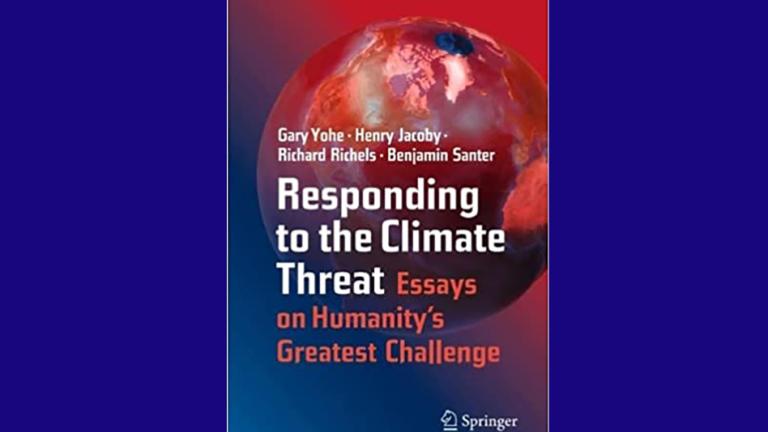
A new book co-authored by MIT Joint Program Founding Co-Director Emeritus Henry Jacoby
From the Back Cover
This book demonstrates how robust and evolving science can be relevant to public discourse about climate policy. Fighting climate change is the ultimate societal challenge, and the difficulty is not just in the wrenching adjustments required to cut greenhouse emissions and to respond to change already under way. A second and equally important difficulty is ensuring widespread public understanding of the natural and social science. This understanding is essential for an effective risk management strategy at a planetary scale. The scientific, economic, and policy aspects of climate change are already a challenge to communicate, without factoring in the distractions and deflections from organized programs of misinformation and denial.
Here, four scholars, each with decades of research on the climate threat, take on the task of explaining our current understanding of the climate threat and what can be done about it, in lay language―importantly, without losing critical aspects of the natural and social science. In a series of essays, published during the 2020 presidential election, the COVID pandemic, and through the fall of 2021, they explain the essential components of the challenge, countering the forces of distrust of the science and opposition to a vigorous national response.
Each of the essays provides an opportunity to learn about a particular aspect of climate science and policy within the complex context of current events. The overall volume is more than the sum of its individual articles. Proceeding each essay is an explanation of the context in which it was written, followed by observation of what has happened since its first publication. In addition to its discussion of topical issues in modern climate science, the book also explores science communication to a broad audience. Its authors are not only scientists – they are also teachers, using current events to teach when people are listening. For preserving Earth’s planetary life support system, science and teaching are essential. Advancing both is an unending task.
About the Authors
Gary Yohe is the Huffington Foundation Professor of Economics and Environmental Studies, Emeritus, at Wesleyan University in Connecticut. He served as convening lead author for multiple chapters and the Synthesis Report for the IPCC from 1990 through 2014 and was vice-chair of the Third U.S. National Climate Assessment.
Henry Jacoby is the William F. Pounds Professor of Management, Emeritus, in the MIT Sloan School of Management and former co-director of the MIT Joint Program on the Science and Policy of Global Change, which is focused on the integration of the natural and social sciences and policy analysis in application to the threat of global climate change.
Richard Richels directed climate change research at the Electric Power Research Institute (EPRI). He served as lead author for multiple chapters of the IPCC in the areas of mitigation, impacts and adaptation from 1992 through 2014. He also served on the National Assessment Synthesis Team for the first U.S. National Climate Assessment.
Ben Santer is a climate scientist and John D. and Catherine T. MacArthur Fellow. He contributed to all six IPCC reports. He was the lead author of Chapter 8 of the 1995 IPCC report which concluded that “the balance of evidence suggests a discernible human influence on global climate”. He is currently a Visiting Researcher at UCLA’s Joint Institute for Regional Earth System Science & Engineering.
Access the Book
View the book on the publisher's website here.
Order the book from Amazon here.






